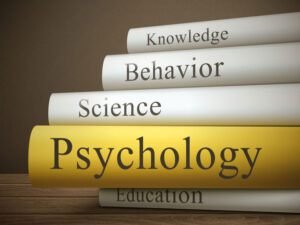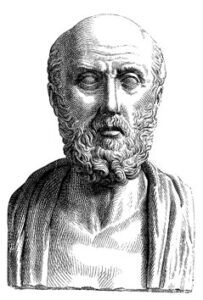

Is psychology liberal arts? Yes – psychology is not only considered one of the liberal arts, it is also an important tool for studying other liberal arts disciplines. It was actually through the humanities that the field of psychology was developed. And today psychology is used as an important resource for exploring human behaviors and cultural phenomena, making it inseparable from any liberal studies curriculum.
Psychology is one of the most fundamental and traditional liberal arts disciplines.
Psychology falls squarely into the scope of the traditional humanities. As the scientific study of the mind and human behavior, there is no discipline that is more vital to unlocking the mysteries of human emotion and experience.
Sponsored School(s)
A Liberal Arts Major Almost Always Involves the Study of Psychology
Psychology classes are also a vital part of a liberal arts major. Although your school may not require a specific psychology class, you’re likely to find quite a few psychology department classes that fulfill different category requirements for your degree, including:
- Lab sciences
- Social sciences
- Upper or lower division electives
 In fact, there are many schools that offer liberal studies degrees with a full concentration in psychology. In those cases, you’ll find more required psychology classes on your schedule, with a more balanced and in-depth perspective on the topic. The combination of a broad arts and sciences curriculum together with an inquiry-driven, dialogue-based educational approach to learning psychology is formidable. You might even pick a liberal arts degree with a psychology concentration as a first step on your path to becoming a psychologist!
In fact, there are many schools that offer liberal studies degrees with a full concentration in psychology. In those cases, you’ll find more required psychology classes on your schedule, with a more balanced and in-depth perspective on the topic. The combination of a broad arts and sciences curriculum together with an inquiry-driven, dialogue-based educational approach to learning psychology is formidable. You might even pick a liberal arts degree with a psychology concentration as a first step on your path to becoming a psychologist!
A strong understanding of psychology is useful in interpreting and critiquing many other liberal studies courses. Everything from literature to society and culture studies benefits from having a background in psychology. Getting inside the heads of characters, of creators, of public figures, is a lot of what liberal studies are all about.
Psychology offers the toolset to explore motivations and behaviors scientifically. Through observation, analysis, and dialogue, psychology explores many of the mysteries behind social and cultural phenomena and helps explain them. That’s a classic liberal arts task and psychology is a classic liberal arts tool for accomplishing it. That puts psychology right at the center of modern liberal studies.
Liberal Arts Ties Philosophy in with Psychology
 Psychology also has a strong stake in liberal arts because it emerged from the field of philosophy, which is still one of the core components of a liberal studies program.
Psychology also has a strong stake in liberal arts because it emerged from the field of philosophy, which is still one of the core components of a liberal studies program.
The Greek forefathers of liberal studies didn’t differentiate between philosophical and psychological inquiry. They did spend plenty of time exploring mental states and behaviors with the tools of rational thought and logic, though.
Hippocrates, the ur-doctor in the ancient history of medicine, theorized that mental disorders had physical rather than supernatural causes.
In the mid-1800s, though, classically educated philosophers were the first proponents of the field of experimental psychology. Men like Gustav Fechner and Wilhelm Wundt were philosophers and physiologists who took an interest in mental processes. They used the critical thinking skills honed by their philosophical studies to devise theories of mental processes and test them in laboratories.
The entire field of psychology and all its schools descends from those philosophers. And even today, it’s philosophy as much as science that separates those schools from one another. There are questions within the field over treatment and analytical methodologies that can’t be answered by science alone. Is mentalism or behaviorism the better technique? … How is thought processed in the brain and where is the distinction between mental and physical processes? … What is the nature of first-person experiences such as emotions, and to what degree can they be generalized between individuals?
Not only is psychology considered one of the liberal arts, but it continues to be valuable in plumbing the depths of other disciplines included in a liberal arts curriculum.






